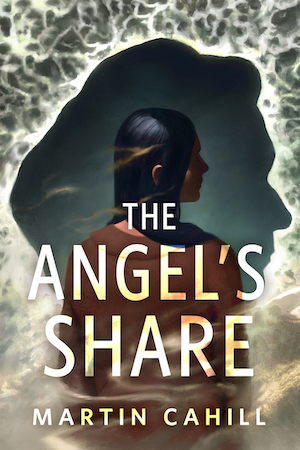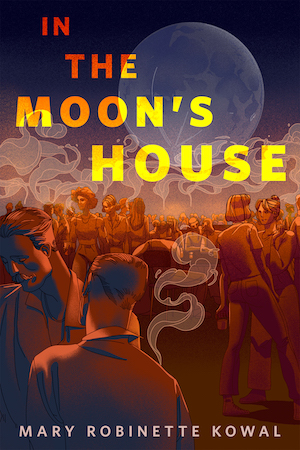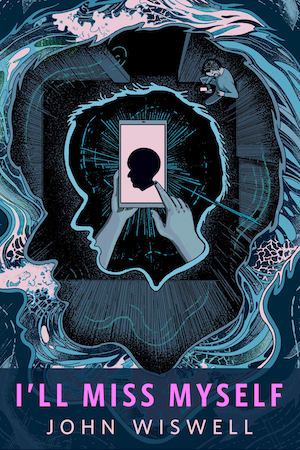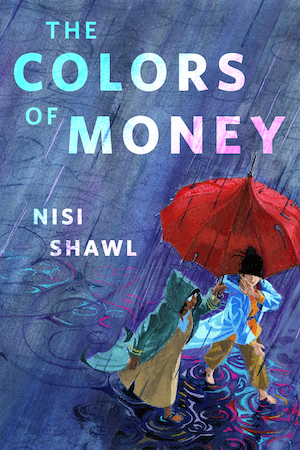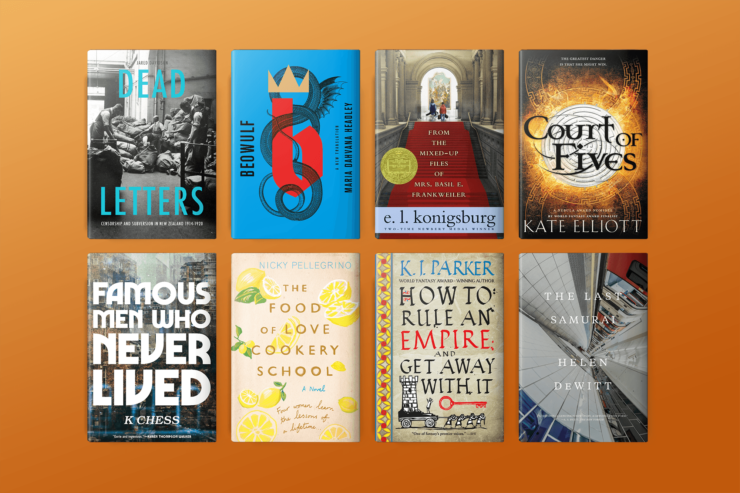September started off well with a week’s trip to Gaspesie on the Atlantic coast of Quebec with friends, and ended very badly with another local pretty complete lockdown. On holiday and back at home I read fifteen books, a mixed lot, and here they are.
The Last Samurai, Helen DeWitt (2000)
This book has nothing whatsoever to do with the movie, and very little to do with Japan. It’s about a single mother who decides to use the movie Seven Samurai to give her son good male role models. Except it isn’t really about that, it’s about books and language and finding out who you are and what that means. It’s surreal but very grounded, it’s funny and sad and clever; it’s a mainstream book but I think most of the people who will really like it are probably genre readers. It’s an impossible book to describe. I strongly recommend reading the first chapter online (or if you’re fortunate enough, then in the library), and seeing if you like it. I was talking earlier about books that are “grabby,” that make you want to keep reading it—this one was very well endowed with that quality. I read it now because I finally reached saturation point of the right people recommending it to me, and I highly recommend it to your attention.
From the Mixed-Up Files of Mrs Basil E. Frankweiler, E.L. Konigsburg (1967)
Delightful book about children who run away to live in the Metropolitan Museum of Art in New York, with just the right amount of practical and emotional detail. I totally missed this book until this year. You need your ten-year-old head to read it, but if you have your ten-year-old head, or any ten-year-olds, it’s great.
How to Rule an Empire and Get Away With It, K.J. Parker (2020)
As I loved Sixteen Ways To Defend A Walled City I bought this sequel the day it came out and I suppose I should have expected to be disappointed. It was good, but it did not have the perfect storm of things I liked about its predecessor. I did like the Double Star plot, but I didn’t like the narrator much. Clever book, perhaps too clever for its own good.
The Floating Admiral, The Detection Club (1931)
A round-robin story with chapters by many great Golden Age of Crime writers, and some lesser known ones (more on the Detection Club here). The thing that makes it interesting is that it’s a murder mystery where the authors didn’t know the answer as they wrote it, but they all had to have an answer in mind, and those answers were revealed at the end. More of a curiosity than a book, really.
First Comes Love, Emily Giffin (2016)
Sometimes I love Giffin and sometimes she chokes me. This is one of the choking ones, and I’m not sure why, or what it is that makes the difference, which is one reason why I keep reading her.
The Food of Love Cookery School, Nicky Pellegrino (2013)
A romance novel set in Italy, in which people go to Italy and learn to cook and fall in love or anyway are in Italy. Probably nobody else wants to read it. But Pellegrino is getting me through All This better than anything else I’m reading.
My Husband Simon, Mollie Panter-Downes (1931)
Odd novel, beautifully written, set at an odd moment of time when it was very hard for women to be independent by working in England but just barely possible. This is about the marriage of one of those women, the way she falls in love and then cannot make the married life her husband expects. Claustrophobic in some ways, funny in some ways, definitely interesting.
The Enchanted April, Elizabeth von Arnim (1922)
Re-read. This is the ur-example of the book where people go to Italy and then they’re in Italy and everything is all right. Two women in a London club see an advertisment for a castle to be let in Umbria for the month of April, and realise they might be able to afford it together. I have read it several times and it always makes me happy. It’s available for free on Project Gutenburg. It’s not von Arnim’s best book, nor the one that impresses me most, but it’s the perfect one to read right now.
Famous Men Who Never Lived, K Chess (2019)
Brilliant but depressing book about refugees from an alternate world and what that means. Would make an interesting paired reading with Palwick’s The Necessary Beggar. This was really powerfully written, and I’m really glad I’ve read it, but it was a little too bleak to be reading right now. I’m putting the author on my “authors to watch out for” list and I’ll be interested to see where she goes from this.
Dead Letters: Censorship and Subversion in New Zealand 1914-1920, Jared Davidson (2019)
This is about censorship in New Zealand in WWI, but it’s not mostly about the censors, it’s mostly about the people who were censored, focusing in on the types of people and the specific individual people whose letters are in the archive of mail that didn’t get through. There’s a German woman who emigrated to New Zealand, a lesbian doctor from Denmark, members of the IWW, a man who ran away to avoid conscription, a dockworker—the kinds of people who don’t normally make it into any kind of history books, but here we have everything Davidson could find out about them and their lives and the cross-connections between them. Absolutely fascinating,
Tiny Pieces of Us, Nicky Pellegrino (2020)
A boy dies, and parts of his body are donated to save the lives of five other people—do they have a connection afterwards? And do they owe anything to his mother? Do they go on holiday in Italy and eat great food? Sure they do. Interesting book, with a tiny bit of preaching to the converted in my case when it comes to organ donation.
Court of Fives, Kate Elliott (2015)
Kate Elliott always writes solid books with good characters but sometimes they tend to sprawl a bit. This one doesn’t—this one is very tight, and it has a nifty world and just one point of view. Really grabby, really fun, absorbing, well plotted, excellent use of the numinous. Great family relationships, great created cultural context, excellent teenage protagonist. First of three, it has very good volume completion but I bought the second right away.
Wired Love: A Romance of Dots and Dashes, Ella Cheever Thayer (1879)
I listened to rather than read this one, and it was both funny and fascinating—a forgotten bestseller, about telegraph operators falling in love in the Victorian US.
A Great Improvisation: Franklin, France, and the Birth of America, Stacy Schiff (2005)
This is an account of Benjamin Franklin’s mission to France at the end of the Enlightenment, and the way he got Louis XVI to help the nascent republic on the other side of the Atlantic, at the long-term cost of the French Revolution. This suffers a little from the flaw of most US history of assuming that the reader already knows everything about the US and doesn’t explain who John Adams is or John Jay, and yes, I can use Wikipedia, but Schiff explains who all the French players are, even the ones I know really well. Apart from that this is an interesting detailed account of a fascinating moment.
Beowulf, translated by Maria Dahvana Headley, (c1000, trans. 2020)
Another one I listened to, and perhaps best that way. Headley made a lot of interesting choices; some of them can be explained by just saying she started off by translating “Hweat” as “Bro.” She also made a lot of more feminist choices, in contexts where previous translators had not been thinking about that at all. Overall this had the poetic cadence of today. I started off very unsure and sometimes jarred, but it grew on me as it went on. Not as good as the Tolkien, better than the Heaney.
Jo Walton is a science fiction and fantasy writer. She’s published two collections of Tor.com pieces, three poetry collections, a short story collection and fourteen novels, including the Hugo- and Nebula-winning Among Others. Her previous novel, Lent, was published by Tor in May 2019, and her fifteenth novel, Or What You Will, came out on July 7, 2020. She reads a lot, and blogs about it here irregularly. She comes from Wales but lives in Montreal. She plans to live to be 99 and write a book every year.


